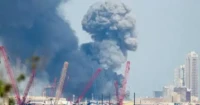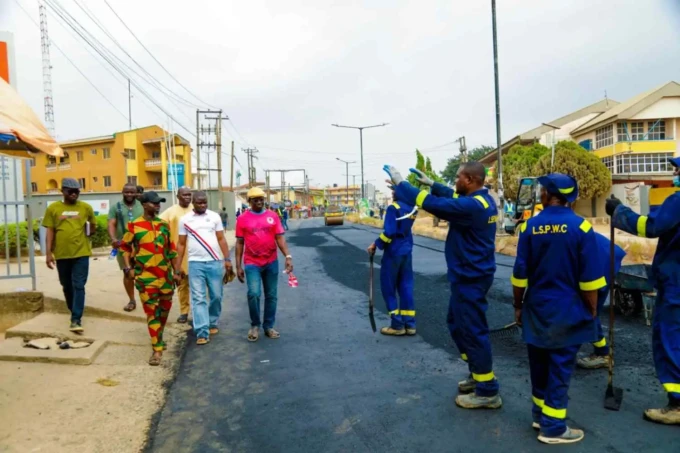Boko Haram has intensified its activities in northeastern Nigeria, leading to a resurgence of violence that has raised significant concerns among local and federal authorities. Since early 2025, the extremist group has launched a series of attacks, overwhelming military outposts, planting roadside bombs, and assaulting civilians. This resurgence is attributed to the group’s division into two factions: the Islamic State West Africa Province (ISWAP) and Jama’atu Ahlis Sunna Lidda’awati wal-Jihad (JAS). Both factions have been responsible for numerous assaults, including attacks on military bases across Borno state and joint Nigeria-Cameroon operations. Their success is credited to territorial expansion, decentralized command structures, and support from the Islamic State in the Middle East, which has provided advanced tactics such as nighttime raids and the use of modified drones. (apnews.com)
The Nigerian military is facing significant challenges in countering this resurgence. Many military outposts are understaffed and isolated, leading to delayed reinforcements and, in some cases, instances of soldiers fleeing attacks. The situation is further complicated by former militants aiding extremists, exacerbating the crisis. Authorities fear a return to the height of Boko Haram violence experienced in 2013-2014. Local and federal leaders have called for stronger military responses as Boko Haram continues to gain ground with increasing frequency and sophistication. Senior commanders have recently pledged more troop deployments in the region. (apnews.com)
In Borno State, Governor Babagana Zulum has raised alarms over the resurgence of Boko Haram activities. During a high-level security meeting, he expressed deep concern over the recent wave of attacks, abductions, and the weakening grip of military presence across several local government areas. He emphasized the need for targeted military operations in critical zones, including the Tumbus region of Lake Chad and the Mandara Hills in Sambisa Forest, which have become safe havens for terrorists. Governor Zulum also highlighted challenges such as insufficient manpower and porous borders, urging the Nigerian Army to deploy more personnel and secure borders in the Sahel to achieve lasting peace. (thenaijapost.ng)
The resurgence of Boko Haram has also had a devastating impact on local communities. In May 2025, militants killed at least 23 farmers and fishermen in Malam Karanti village, Borno state. The attackers gathered the victims before executing them, leaving only an elderly man alive, who subsequently alerted others. Recovery efforts by locals were thwarted as the militants warned them off. This attack follows recent acknowledgments by Borno’s governor that Boko Haram has resumed violent assaults and kidnappings in the state, undermining previous security improvements. (reuters.com)
The international community has also expressed concern over the situation. In April 2025, northern Nigeria experienced a dramatic surge in rural violence, resulting in over 150 deaths and thousands displaced, particularly in Benue and Plateau states. This violence, rooted in long-standing conflicts over land and resources between nomadic Muslim herders and sedentary Christian farmers, has been exacerbated by climate change and a burgeoning arms influx. Compounding the crisis, a Boko Haram splinter group launched attacks, further destabilizing the region. President Bola Tinubu, who narrowly won the 2023 election vowing to improve security, faces mounting criticism both domestically and internationally for inadequate progress. Despite increased defense spending and new security leadership, systemic issues such as understaffed forces and insufficient reforms have hindered improvements. (ft.com)
In response to the escalating threat, governors from the North-East region have rallied security chiefs for a joint response. In May 2025, they convened in Damaturu, Yobe State, to address the resurgence of Boko Haram insurgency, widespread poverty, and the region’s infrastructure deficit. Governor Zulum emphasized the severity of the situation, urging federal authorities to avoid complacency and highlighting the need for enhanced intelligence, better coordination between military forces, and the establishment of stronger local partnerships to tackle the insurgency at its roots. (punchng.com)
The resurgence of Boko Haram presents a multifaceted challenge that requires a comprehensive approach, including military action, community engagement, and international support, to restore stability and security to the affected regions.








Is it just me, or does anyone else think Boko Harams resurgence is a serious threat that Nigeria needs to address urgently?
Is military intervention the only solution? What about addressing root causes like poverty and corruption? Just a thought.
Im not convinced that Nigeria is at a bigger risk with Boko Harams resurgence. Lets consider all angles before jumping to conclusions.
I dont get why some people still sympathize with Boko Haram. Theyre terrorists, plain and simple. #StopTheViolence
Do you think Nigeria needs more international support to combat Boko Harams resurgence? Its a complex issue that requires global attention.